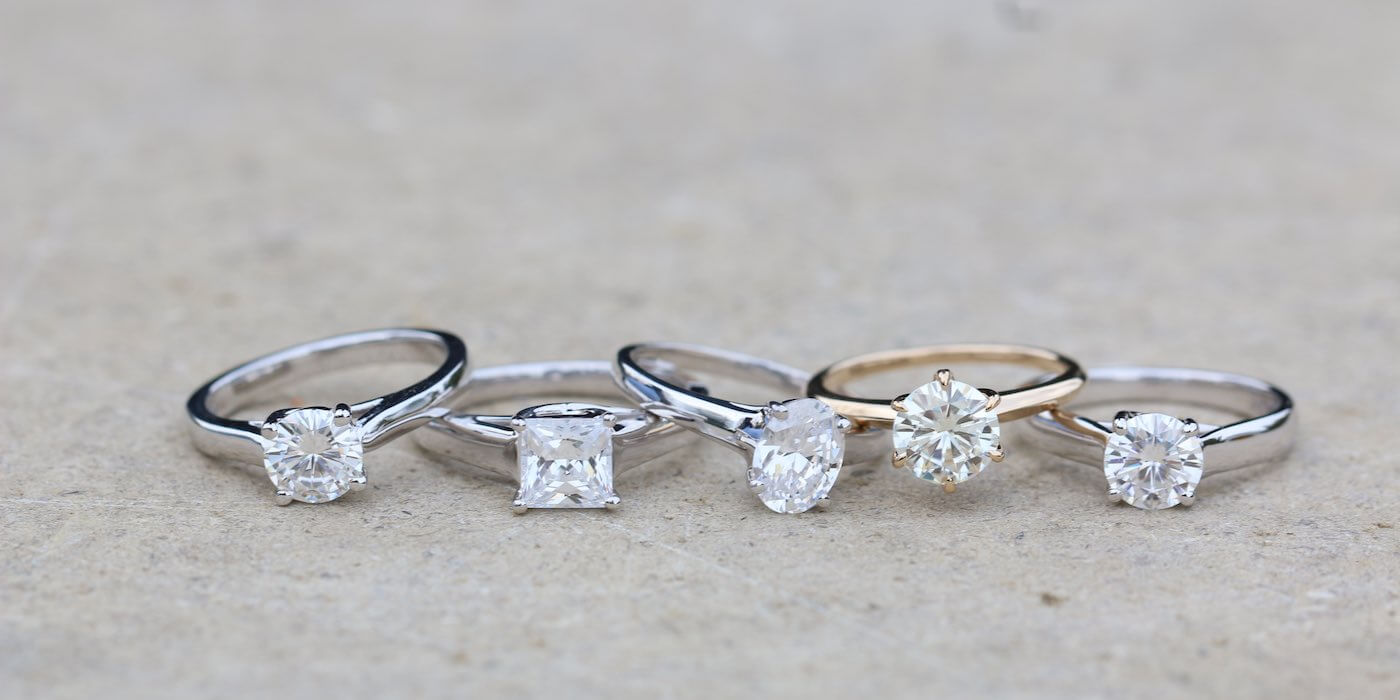
Introduction
Gemstones have long captivated humanity with their beauty and allure, none more so than white sapphires and diamonds. These two gems stand out in the world of jewelry for their brilliance and elegance, yet they differ significantly in composition, cost, and cultural significance.
Composition and Physical Properties
Chemical Composition
White sapphires and diamonds differ fundamentally in their chemical makeup White sapphires white sapphires vs diamonds, while also prized for their colorlessness, may exhibit slight undertones of blue or gray, affecting their appearance.. While diamonds are composed of pure carbon, white sapphires are primarily made of aluminum oxide, also known as corundum. This distinction impacts their physical properties, including hardness and optical characteristics.
Hardness and Durability
Diamonds, with a perfect 10 on the Mohs scale of hardness, are the hardest natural substance on Earth. In contrast, white sapphires score a 9, making them highly durable but slightly less resistant to scratches than diamonds. This disparity in hardness affects their longevity and ability to withstand daily wear.
Brilliance and Sparkle
The brilliance of a gemstone is determined by its refractive index and dispersion. Diamonds, with a refractive index of 2.42, disperse light beautifully, creating the famous “fire” effect. White sapphires, with a slightly lower refractive index, exhibit brilliance that is comparable but often with less dispersion, resulting in a different visual appeal.
Cost Comparison
Price Factors
The price of a gemstone is influenced by several factors, including rarity, demand, and market conditions. Diamonds, especially those of higher carat weights and exceptional quality, command premium prices due to their scarcity and desirability. In contrast, white sapphires are more affordable, offering a budget-friendly alternative without compromising on elegance.
Affordability
For those seeking a larger stone or a more substantial piece of jewelry within a limited budget, white sapphires present a compelling option. Their affordability allows for more flexibility in design and setting choices, making them accessible to a broader audience.
lab grown diamonds, also known as synthetic or cultured diamonds, are created through technological processes that mimic the natural conditions under which diamonds form in the Earth’s mantle. These diamonds are chemically and optically identical to their mined counterparts, composed of carbon atoms arranged in the crystal structure characteristic of diamonds. The production of lab-grown diamonds
Cultural and Symbolic Significance
Historical Context
Diamonds have held cultural significance for centuries, symbolizing love, purity, and endurance. From ancient civilizations to modern engagements, diamonds have been cherished for their enduring beauty and symbolic meaning. White sapphires, although historically less prominent, are gaining popularity for their own symbolic associations and contemporary allure.
Emergence of White Sapphires
The rise of white sapphires in jewelry reflects shifting preferences and a growing appreciation for alternatives to traditional diamonds. As consumer awareness increases, so does the recognition of white sapphires as symbols of elegance and sophistication, suitable for diverse occasions.
Ethical Considerations
Ethical Mining Practices
The mining industry faces scrutiny regarding ethical practices, including labor conditions and environmental impact. Diamonds, in particular, have been associated with concerns over conflict or “blood diamonds.” Ethical sourcing initiatives aim to mitigate these issues by promoting responsible mining practices and transparency in the supply chain.
Sustainability
Both white sapphires and diamonds are scrutinized for their environmental footprint. Initiatives promoting sustainable mining practices and ethical sourcing are gaining traction within the jewelry industry, influencing consumer choices toward more responsibly sourced gemstones.
Practical Considerations for Jewelry
Setting Preferences
The choice between white sapphires and diamonds often depends on the desired jewelry setting and design. Diamonds, with their hardness and durability, are preferred for engagement rings and daily wear jewelry that requires resilience against wear and tear. White sapphires, while durable, may be better suited for occasional wear or jewelry styles that prioritize affordability and design flexibility.
Maintenance and Care
Proper maintenance and care are essential for preserving the beauty of both white sapphires and diamonds. Regular cleaning and professional inspections help maintain their brilliance and ensure longevity. Diamonds, due to their hardness, are less susceptible to scratching and abrasion compared to white sapphires, which may require more careful handling.
Celebrities and Influences
Celebrity Choices
Celebrities and public figures influence jewelry trends through their personal choices and public appearances. Diamond jewelry remains a staple in red carpet events and high-profile engagements, showcasing their enduring appeal and prestige. White sapphires, embraced by some celebrities for their understated elegance and versatility, contribute to shifting perceptions in the industry.
Influencer Impact
Social media influencers play a pivotal role in shaping consumer preferences and promoting emerging trends in jewelry. Their endorsement of white sapphires as a stylish and sustainable alternative to diamonds reflects changing attitudes toward luxury and ethical consumption.
